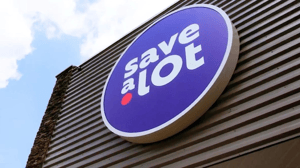Walmart sees ‘slight pullback’ in grocery sales as weight-loss drug usage climbsWalmart sees ‘slight pullback’ in grocery sales as weight-loss drug usage climbs
The medications Ozempic, Mounjaro, Wegovy and others decrease appetite by as much as 30%, prompting changes in consumer behavior, researchers said.

Soaring use of Ozempic and similar weight-loss drugs is having a slightly slimming effect on food purchases at Walmart, the country’s largest grocery retailer, according to a Bloomberg interview with the company’s U.S. CEO.
“We definitely do see a slight change compared to the total population,” John Furner told the publication this week. “We do see a slight pullback in overall basket. Just less units, slightly less calories.”
Walmart did not respond early Thursday to a WGB request to comment on the report.
Walmart and other retailers have recently reported that the drugs, known as GLP-1s and originally used to treat diabetes, have given a boost to their pharmacy sales. In addition to Ozempic, popular drugs now being used for weight loss also include Mounjaro and Wegovy.
The drugs, nearly all of which are injectable medications, have been shown to reduce appetite, with patients ingesting 20% to 30% fewer calories each day, researchers found.
The “slight pullback” currently being seen in grocery purchasing could widen: Morgan Stanley Research analysts last month said 24 million people—7% of the U.S. population—could be taking the drugs by 2035.
What’s more, people on the medications most significantly reduced their intake of foods high in sugar and fat. Their consumption of candy, sugary drinks and baked goods dropped by as much as two-thirds, Morgan Stanley said, and analysts estimated that overall U.S. consumption of soft drinks, baked goods and salty snacks could fall by as much as 3% by 2035 as more Americans receive prescriptions for the weight-loss drugs.
“Companies will likely adapt to changes in consumer behavior through innovation and by reshaping their product portfolios,” Morgan Stanley’s Tobacco and Packaged Food Analyst Pamela Kaufman said in a statement. “Brands already offering healthier options will be in the best position to respond to change.”
The researchers said the short-term impact on grocery stores should be “modest,” though that could intensify as more people start taking the medications.
Bentonville, Arkansas-based Walmart, according to Bloomberg, is able to analyze changes in purchasing habits among people taking GLP-1 drugs and can also compare those behaviors with consumers who aren’t on the medications.
“Retailers need to monitor the obesity drugs trend,” Simeon Gutman, Morgan Stanley Research’s equity analyst covering hardline, broadline and food retail, said in a statement. “They should be prepared to make changes to their assortment and how they market to their core customers to maintain market share.”
Mass retailers like Walmart, which takes in about 25% of all grocery dollars in the country, would likely be more insulated from changes in food shopping behavior than supermarket chains.
Walmart CFO John David Rainey, in a post-earnings call meeting with officials from the D.A. Davidson investment banking firm in May, called the year-over-year sales growth of GLP-1 drugs “pretty mind blowing,” according to a transcript from financial services firm AlphaSense.
When asked whether skyrocketing sales of Ozempic and the other obesity medications could impact grocery sales, however, Rainey saw a potential upside:
“By the same extension, it might also have some effect on the sale of pants,” he said. “People’s waist size is going down.”
Read more about:
WalmartAbout the Author
You May Also Like






